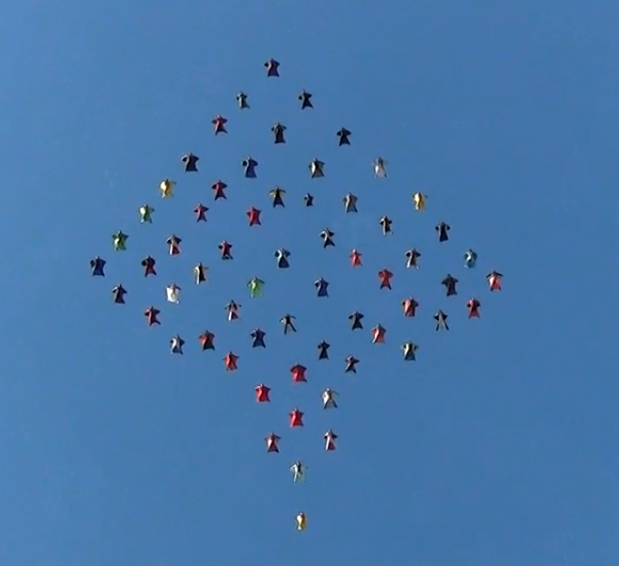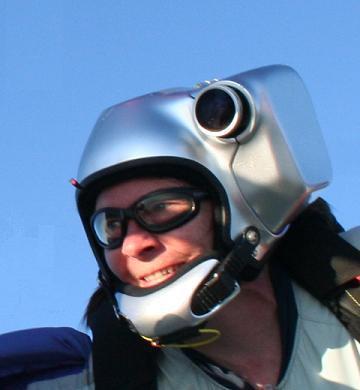Recommended Posts
rushmc 18
lawrocket[Reply]Funny how warming of the Arctic causes the polar vortex to destabilize and wobble around. Climate change is such a bitch.
Funny how alarmists piss in the wind with science. Sure, we've seen polar vortices since we started keeping records in North America. And of course, we need decades of observations from satellites and radiosondes and the like to remove the noise (natural variability) from the signal.
But science be damned. There's a point to make. And if it takes anti-science rhetoric to do it, then it must be done!!!!
To our point
QuoteOne of the authors of a draft United Nations report aimed at helping governments reach an international climate agreement has pulled out of the writing team, claiming his colleagues were being too "alarmist" about the threat of climate change, Reuters reported.
Richard Tol, a professor of economics at Sussex University in England, said he disagreed with some findings of the summary to be released later this month in Japan, where scientists from 100 countries are currently meeting to edit and approve the report.
"The drafts became too alarmist," Tol told Reuters, acknowledging that some other authors "strongly disagree with me."
The draft says economic growth and poverty reduction will slow down and global food prices will rise between 3 and 84 percent by 2050 because of warmer temperatures and changes in rain patterns, according to documents obtained by The Associated Press.
if we falter and lose our freedoms,
it will be because we destroyed ourselves."
Abraham Lincoln
kallend 1,635
rushmc
To our pointQuoteOne of the authors of a draft United Nations report aimed at helping governments reach an international climate agreement has pulled out of the writing team, claiming his colleagues were being too "alarmist" about the threat of climate change, Reuters reported.
So you agree that being alarmist is OK, just so long as you're not "too alarmist".
Progress.
I'm not alarmist at all. I believe AGW is proven fact (along with 98% of climate scientists, the National Academy of Sciences, AAAS, and other highly credible sources), but the planet will survive just fine.
The only sure way to survive a canopy collision is not to have one.
rushmc 18
if we falter and lose our freedoms,
it will be because we destroyed ourselves."
Abraham Lincoln
brenthutch 388
Germany, Austria, Russia and China all had emperors;
Few thought the sun would ever set on the British Empire;
The President of the U.S. was William Howard Taft;
The U.S. income tax was still a year away;
No one would have dared suggest we use taxation to control the weather; and
The 20th century horrors of Communism and Fascism still lay ahead.
billvon 2,416
http://www.washingtonpost.com/blogs/wonkblog/wp/2014/01/06/can-global-warming-be-real-if-its-cold-in-the-u-s-um-yes/
brenthutch 388
From NOAA:
The combined average temperature over global land and ocean surfaces for February 2014 tied with 2001 as the 21st highest for February on record, at 0.41°C (0.74°F) above the 20th century average of 12.1°C (53.9°F).
Current global temperatures are not even in the top 20?!?!?
labrys 0
"The combined average temperature over global land and ocean surfaces for December–February was the eighth highest on record for this period, at 1.03°F (0.57°C) above the 20th century average of 53.8°F (12.1°C). "
QuoteGlaciers and snowpack in high-elevation temperate zones are melting.
The Greenland ice pack is melting.
This means that we are in an interglacial period. Either you are in an ice age, entering an ice age or coming out of an ice age. We have been in the latter for several thousand years.
And note: the Greenland ice sheet is in stasis. Yes, a very large amount of ice melts there in summer. That's because it's summer, where temperatures thoughout most of Greenland rise above the freezing point.
Take a look at Greenland's summit station. http://www.summitcamp.org/status/webcam/
Or a nice coastal view of Tasiilaq: http://www.wunderground.com/webcams/carlskou/1/show.html
I think we can safely project that the vast majority of that snow will be gone in August. It's kind of what "summer" tends to do.
QuoteThe Arctic melted enough that the Canadian government had to establish stations to watch ships that attempt a new Northwest Passage.
Right. Because there is the reasonable expectation that a large number of dumbasses will get stuck in ice that they heard wasn't there. See the title of this thread.
QuoteIt took from the Stone Age to the year 1800 for the Earth to reach one billion people. Now we're doing a billion about every fourteen years or so. This type of growth cannot continue unchecked, and will lead to war over the remaining resources, as well as misery and death
Um - we're always at war. We're always in misery and death. And where is it that resources are greatest? In this places that use lots of fossil fuels. Look at the US - eliminate fossil fuels, and crops fail. Those crops we have cannot be harvested. Those crops we harvest can't be transported. Those crops we transport cannot be converted or preserved. And there is death and misery.
Where was the real misery after Sandy hit? If you said, "Places without gas, heating oil or electricity" then you would be correct.
Want to see what people need after a natural disaster? https://pbs.twimg.com/media/A6jJ99fCQAAXSek.jpg
Full story: http://twitchy.com/2012/10/31/pics-nj-gas-lines-stretch-for-miles-residents-use-twitter-to-find-open-stations/
These pictures show something that is pretty fundamental in today's world: "Lack of fossil fuels causes human suffering." Now, unless we further develop alternatives to make them viable, this could be the future because the resource we'll be fighting over will be fossil fuels.
My wife is hotter than your wife.
billvon 2,416
Alternatives? What, do you want us to freeze in the dark?
turtlespeed 212
billvonThe last time Australia had a fall this warm was . . . . never.
http://www.washingtonpost.com/blogs/wonkblog/wp/2014/01/06/can-global-warming-be-real-if-its-cold-in-the-u-s-um-yes/
Never is a LONG time . . .
I'm pretty sure that about 400 years ago, it was much hotter in OZ.
But only in the fall.
BTR #1 / OTB^5 Official #2 / Hellfish #408 / VSCR #108/Tortuga/Orfun
brenthutch 388
labrysWell: If you don't cherry pick your months as much... NOAA also says
"The combined average temperature over global land and ocean surfaces for December–February was the eighth highest on record for this period, at 1.03°F (0.57°C) above the 20th century average of 53.8°F (12.1°C). "
Ok I agree with you. Despite unprecedented levels of CO2, global temperatures remain flat during the 21st century. No global warming, just global warmer.
brenthutch 388
From NOAA
"The average temperature for the contiguous U.S. during March was 40.5°F, 1.0°F below the 20th century average. This was the 43rd coldest March on record, and the coldest since 2002.
Below-average temperatures dominated the eastern half of the contiguous U.S. during March. The largest departures from average occurred across the Great Lakes and Northeast, where nine states had temperatures that ranked among their 10 coldest on record. The persistent cold resulted in nearly two-thirds of the Great Lakes remaining frozen into early April.
Vermont had its coldest March on record, with a statewide temperature of 18.3°F, 8.9°F below average. The previous coldest March in Vermont occurred in 1916 when the monthly average temperature was 18.6°F.
Maine and New Hampshire each had their second coldest March on record, while Michigan and New York had their fifth coldest. Massachusetts and Wisconsin had their eighth coldest March, Connecticut its ninth coldest, and Pennsylvania its 10th coldest."
Record cold caused by record warming. ![]()
kallend 1,635
brenthutchFrom NOAA
"The average temperature for the contiguous U.S. during March was 40.5°F, 1.0°F below the 20th century average. This was the 43rd coldest March on record, and the coldest since 2002.
Below-average temperatures dominated the eastern half of the contiguous U.S. during March. The largest departures from average occurred across the Great Lakes and Northeast, where nine states had temperatures that ranked among their 10 coldest on record. The persistent cold resulted in nearly two-thirds of the Great Lakes remaining frozen into early April.
Vermont had its coldest March on record, with a statewide temperature of 18.3°F, 8.9°F below average. The previous coldest March in Vermont occurred in 1916 when the monthly average temperature was 18.6°F.
Maine and New Hampshire each had their second coldest March on record, while Michigan and New York had their fifth coldest. Massachusetts and Wisconsin had their eighth coldest March, Connecticut its ninth coldest, and Pennsylvania its 10th coldest."
Record cold caused by record warming.
As usual, brenthutch confuses the contiguous USA with the world and one month's weather with climate.
The only sure way to survive a canopy collision is not to have one.





.thumb.jpg.4bb795e2eaf21b8b300039a5e1ec7f92.jpg)



Well, I don't remember ever having a "Polar Vortex" before.
I do remember having "Strong Arctic High Pressure" systems before. And having "Cold Snaps" that resulted in a few days without seeing a temp above zero. It happens most, but not all winters in Wisconsin.
And the really funny one was how we had the "Coldest Temperatures In TWENTY Years" this winter.
Yeah, it hit 22 below. But it hit 19 below last year, 20 below the year before and 18 below the year before that.
We (Green Bay where the TV new comes from for me) set a few "coldest" records this year. Most days with a temp below zero, coldest average temp and a few others like that. But the old record wasn't "smashed" it was just broken by a few days or degrees or whatever.
"~ya don't GET old by being weak & stupid!" - Airtwardo
Share this post
Link to post
Share on other sites